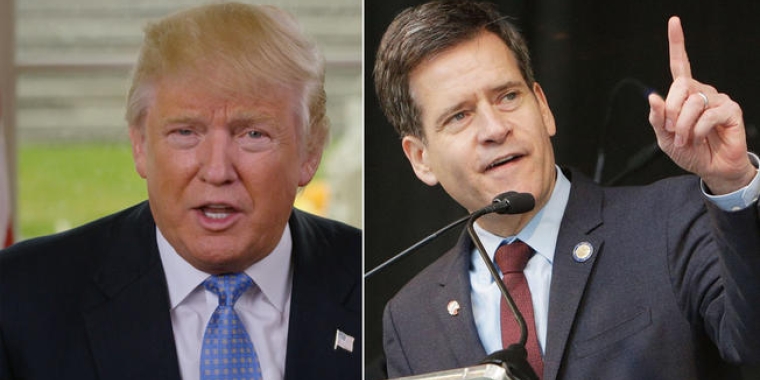
Hoylman’s “T.R.U.M.P.” Act Picks Up Steam Nationally
January 30, 2017

Hoylman: The Trump Administration claims that Americans don’t care about his taxes. The nationwide interest in state legislation forcing presidential candidates to reveal their taxes clearly shows they do.”
NEW YORK -- State Senator Brad Hoylman’s Tax Returns Uniformly Made Public Act (T.R.U.M.P.) Act legislation, which would require presidential candidates to release five years of tax returns in order to appear on the ballot, is gaining momentum around the country.
A national survey released last week shows a majority of voters would support Hoylman’s bill. According to Public Policy Polling, Americans support the idea of the T.R.U.M.P. Act by a 54-34 percent margin. The poll comes on the heels of a PPP survey released two weeks ago showing 54 percent of voters in the presidential swing state North Carolina would support a version of the T.R.U.M.P. Act. Only 33 percent of respondents were opposed.
Fourteen states have introduced or intend to introduce Senator Hoylman’s legislation. The bill has been introduced in New York, Massachusetts, California, Rhode Island, New Jersey and Virginia. Legislators in Maine, Maryland, Hawaii, New Mexico, Pennsylvania, Minnesota, Oregon and Colorado have made commitments to do so.
Over 133,500 people have signed a change.org petition supporting Hoylman’s T.R.U.M.P. Act. And according to a Washington Post/ABC News poll released earlier this month, 74 percent of Americans believe Donald Trump should release his tax returns.
Senator Hoylman said: “I’m sickened by the fact that voters did not have a complete picture on potential conflicts of interest before they cast their vote for president, including foreign financial influence that might be in violation of the emoluments clause of the Constitution. The Trump Administration claims that Americans don’t care about his taxes. The nationwide interest in state legislation forcing presidential candidates to reveal their taxes clearly shows they do.”
Hoylman’s bill has also picked up the support of the New York Times Editorial Board, who called it “An Antidote to Donald Trump’s Secrecy on Taxes.”
related legislation
Share this Article or Press Release
Newsroom
Go to Newsroom

